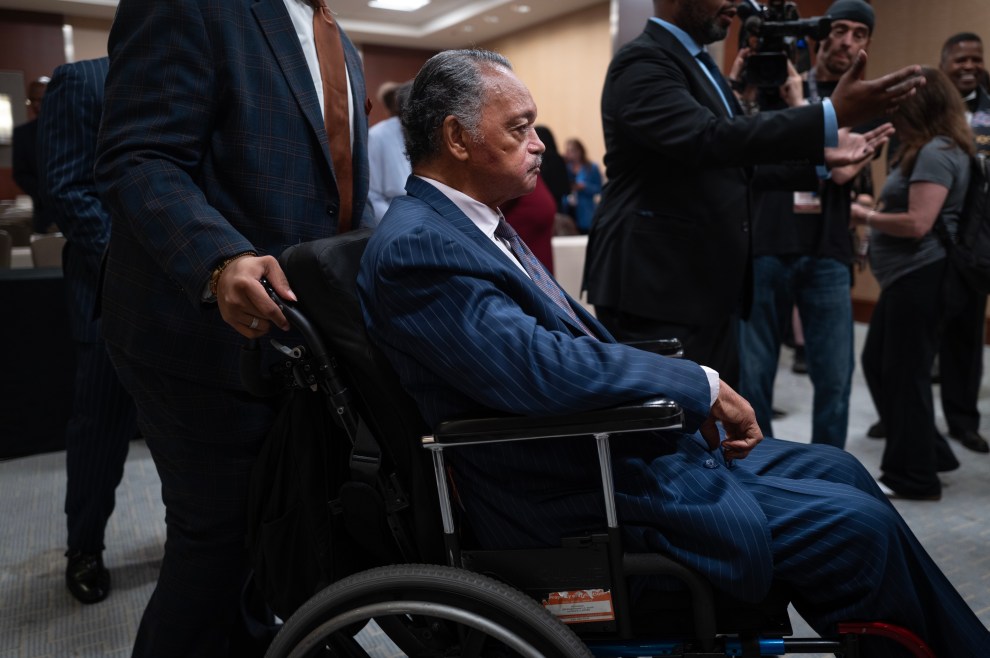Civil rights icon and longtime activsit, Rev. Jesse Jackson Sr., was hospitalized on Wednesday (Nov 12) for observation related to his progressive supranuclear palsy (PSP).
According to the Rainbow PUSH Coalition, Jackson, 84, was admitted to Northwestern Memorial Hospital in Chicago, with his family emphasizing the visit was precautionary and not an emergency.
Progressive supranuclear palsy (PSP) is a rare neurodegenerative disease for which there is currently no cure.
The activist has been managing his PSP condition for more than a decade. “He was originally diagnosed with Parkinson’s disease; however, last April, his PSP condition was confirmed. The family appreciates all prayers at this time,” the organization said.
Jackson announced his Parkinson’s diagnosis in 2017.
“After a battery of tests, my physicians identified the issue as Parkinson’s disease, a disease that bested my father,” he said at the time. “Recognition of the effects of this disease on me has been painful, and I have been slow to grasp the gravity of it.”
Rainbow Coalition
The reverend is seen as a protégé of Dr. Martin Luther King Jr. He rose to national prominence in the 1960s after deferring his studies at Chicago Theological Seminary to work full-time in the Civil Rights Movement alongside King.
Jackson founded Operation PUSH in 1971. The Rainbow Coalition, which grew out of his 1984 presidential campaign, merged with PUSH in 1996.
Jackson’s public activism began decades ago, as one of the “Greenville Eight,” a group of Black students (Jackson was a college freshman at North Carolina A&T) protesting at the whites-only public library in his hometown.
Over his life, he has remained active in the movement, forming Operation PUSH in 1971, running for president twice and, multiple times, successfully negotiating the release of U.S. citizens being held hostage abroad.
Jackson has been based in Chicago except for a break of a few years when he moved to Washington, where Rainbow PUSH had offices. There, he ran for and won a seat as one of the District of Columbia’s “shadow senators,” part of his drive for voting rights and statehood. On the media side, Jackson hosted a CNN show for eight years starting in 1992 and wrote a column for the Sun-Times.

